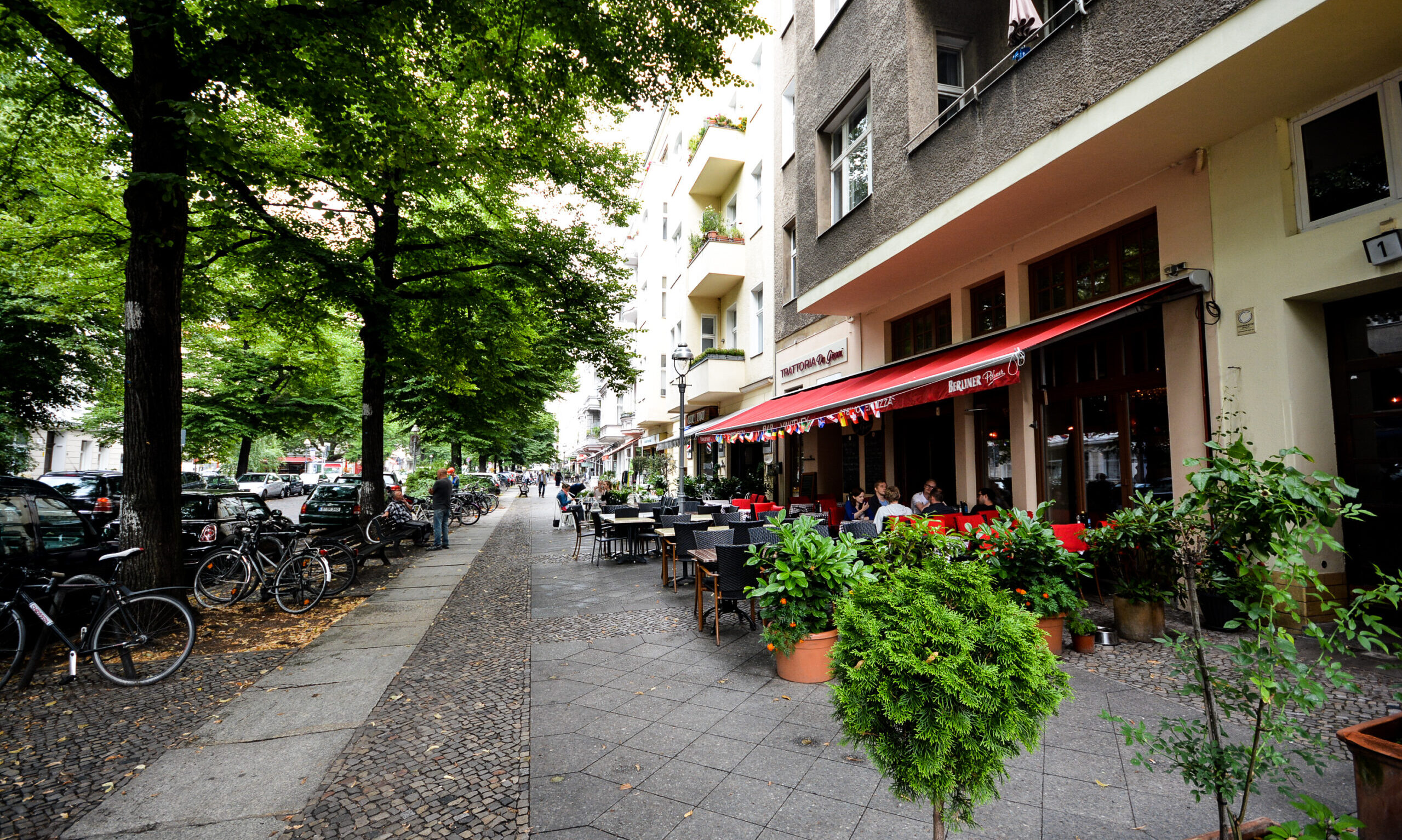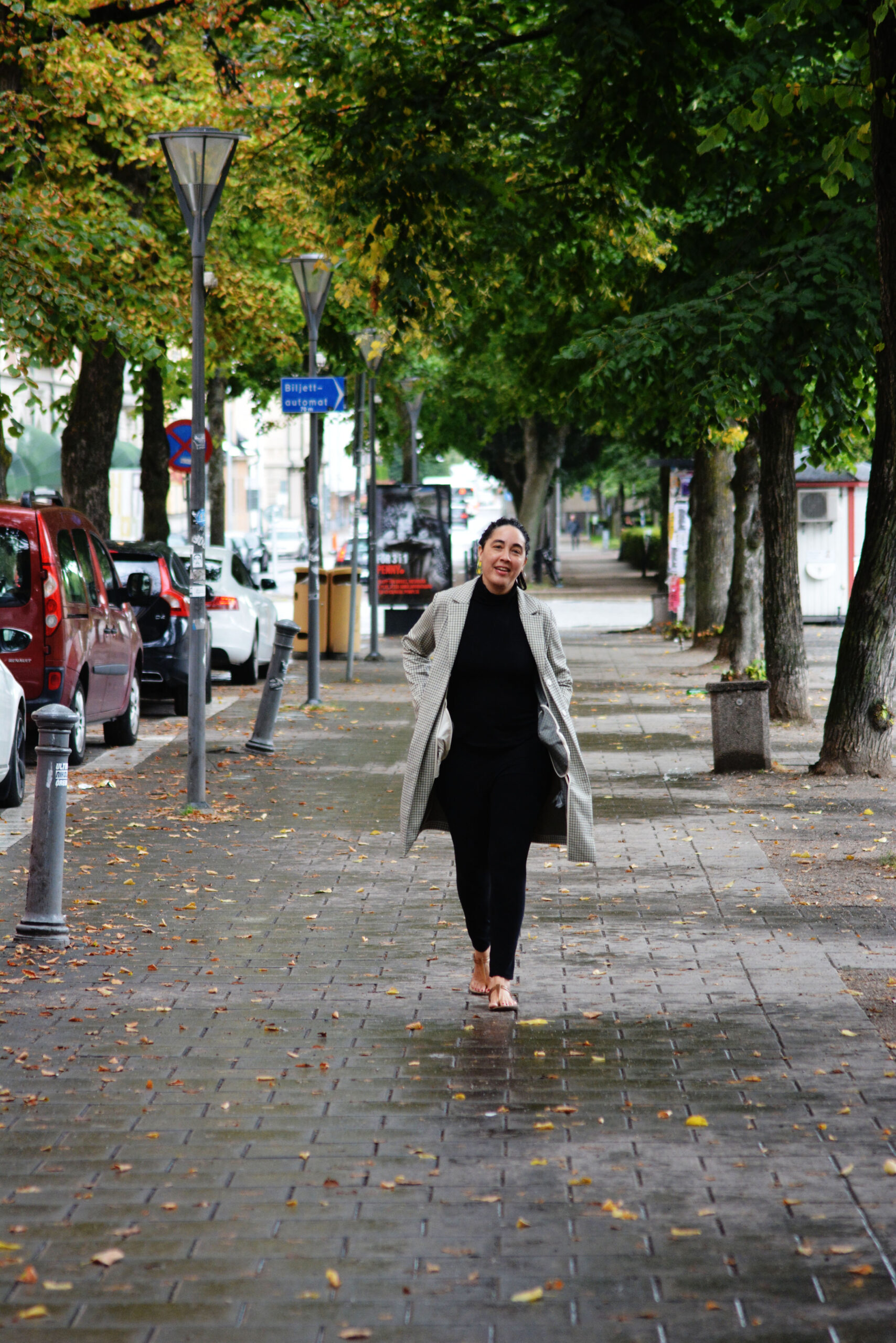
Annika Lundkvist approaches issues of urbanism, mobility, environment, and spatial development from a transdisciplinary perspective and through a quality of life lens.
She values continuously crafting a holistic research and practice approach as well as learning from and amplifying diverse best practices globally.
Her mobility work highlights the many dimensions of enhancing walkability in communities, including the importance of quality, accessible, and affordable public transportation, the myriad of public health benefits, the importance of spatial equity for diverse generations and groups, and the relationship to environmental protection.
At Pedestrian Space, there is also a focus on community and urban agriculture. Issues of food systems and human consumption are inextricably tied to biodiversity, climate change and human well-being. Various forms of crises such as war, pandemics, natural disasters and severe supply-chain disruption can drastically alter the availability of food for communities. Annika’s work on community and urban agriculture focuses on both the benefits and challenges of supporting community and urban agriculture and how this activity can help to shape local food security, food literacy and resilience.
Central in her approach is collaborating with various actors across communities, including municipal agencies, stakeholders, community organizations, institutions and the public.
Read more about her personal connection to issues of walkability here.
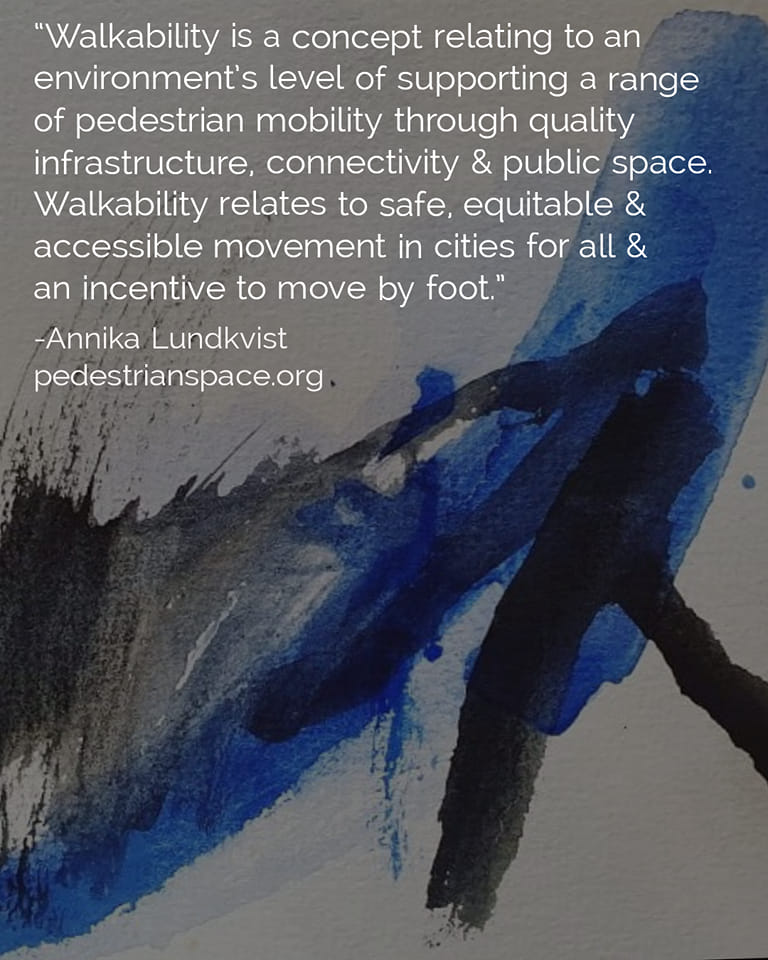
In creating Pedestrian Space, I have been excited to synthesize years of experiences and interests as I developed this media, advocacy, communications and research platform on walkability.
I am a photographer by nature and you will find many of my own images on the pages of Pedestrian Space. My introduction to urbanism as a young adult in 2000 occurred simultaneous to my start as a photographer and I have been visually documenting cities and pedestrian activity ever since.
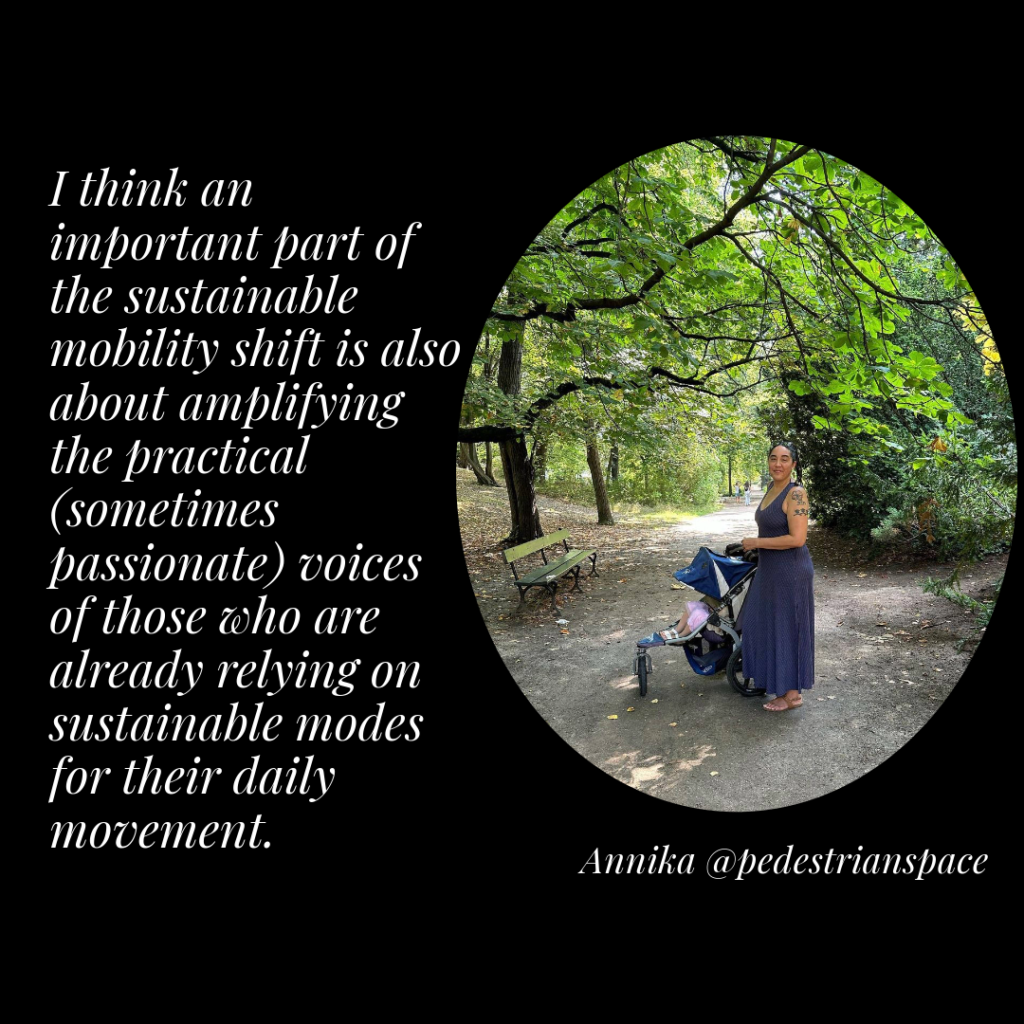
This work has bridged memories of mobility and daily life in five countries and multiple cities. It has connected directly to my love and deep appreciation for walkable communities as well as my work as a photographer, often focusing on scenes of urbanism, mobility and the built environment.
The work takes many cues from my interdisciplinary academic background and offers a foundation to advocate for walkability as an essential dimension of sustainable, vibrant communities and urban resilience.
-Annika Lundkvist
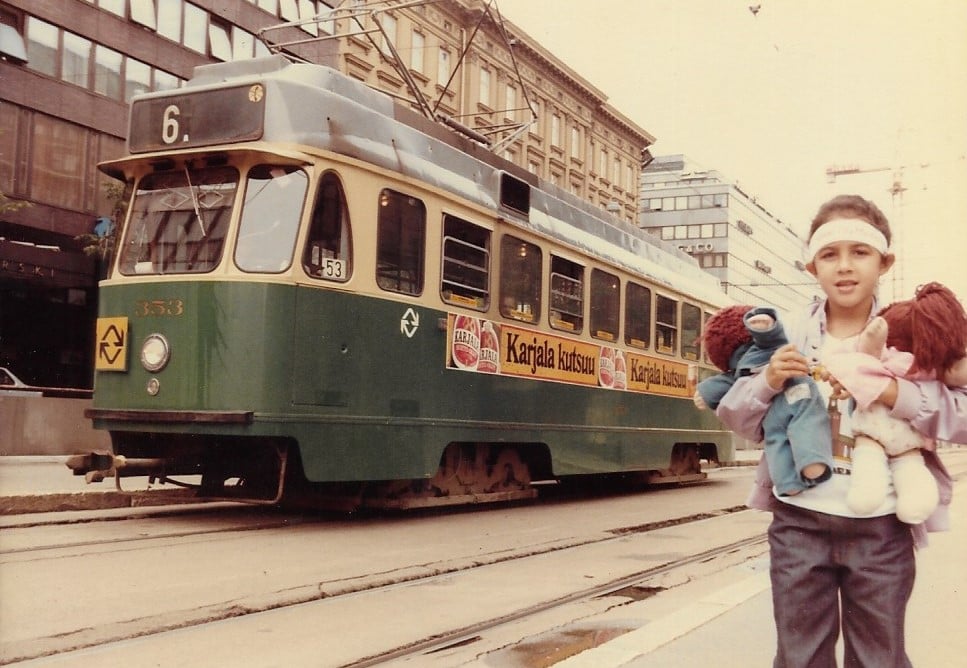
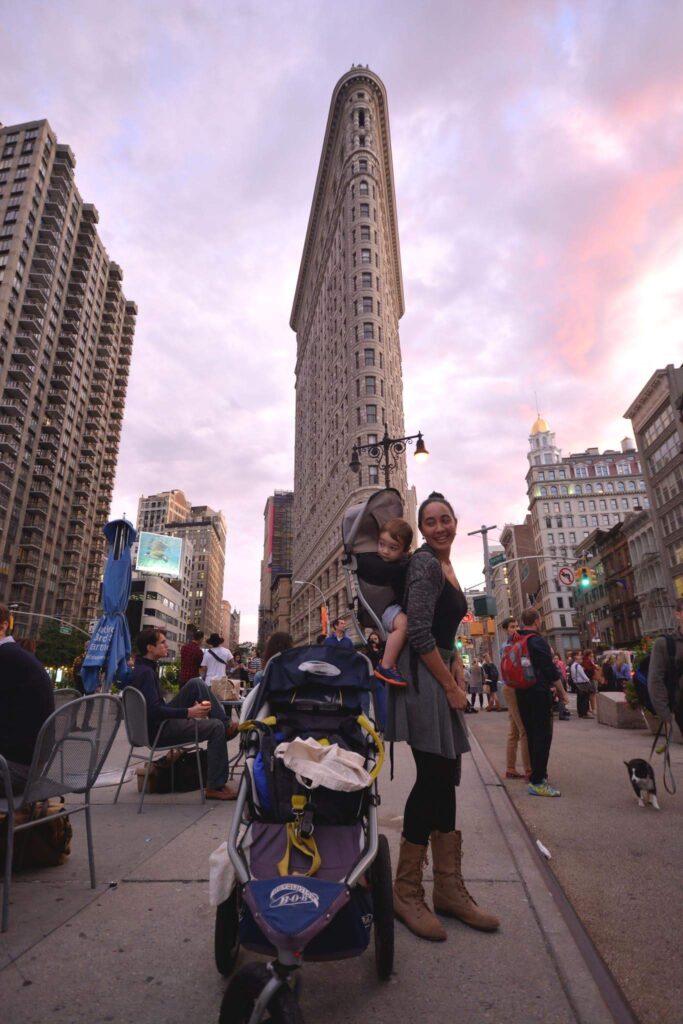
Click here for a brief piece on mobility & motherhood
EXPERIENCE
•Ambassador for Horizon Europe PLUS Change Project (2024-). •Lead Guest Editor for Cities & Health Special Issue on Walkability & Mobility Justice (2024-)
•Video Feature: How is the 15-min city concept transforming our towns? | Discovering Ursynów in Poland! (2023)
•Expert in CEURES Visegrad Project (2023-2024)
•Visiting Researcher Grant, Mobilise, VUB: Urban Transt Lab Brussels (2023)
•Delivered ‘Power Speech’ on Social Exclusion at CUPT (Centrum Unijnych Projektów Transportowych) conference on Transport Exclusion & EU funds
•Co-Founder & Co-Director at Urban Transit Lab (2023- 2024)
•Presentation at ‘Design Convenience: designing sustainable urban environments’ event hosted by The Helen Hamlyn Centre for Design at the Royal College of Art in London
•Recipient of Urban Communication Grant (2023)
•Founder & Editor of pedestrianspace.org (2021-present)
•Ph.D. Student, Institute of Geography & Spatial Organization, Polish Academy of Sciences (2022- present)
•Research Fellow, The Schumacher Institute (2022-present)
•Associate Member, Centre for Spatial, Environmental and Cultural Politics at University of Brighton (2023- center closure 2024)
•Founder & Co-Facilitator of the Global Walkability Correspondents Network (2022-present)
•Master’s in Historic Preservation, Cornell University (Ithaca, NY, USA, 2006)
•Master’s in Spatial Planning & Built Environment. Royal University of Technology (Stockholm, Sweden, 2004)
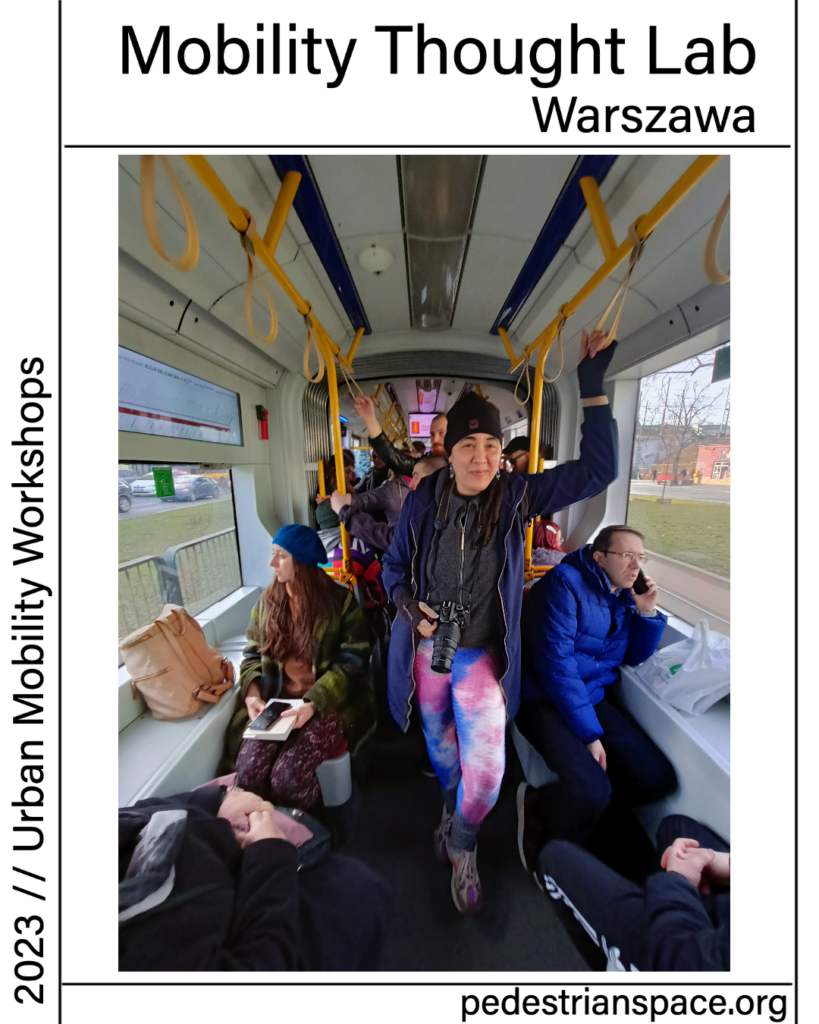
The heart of Pedestrian Space is not only my images or words, but also a spirit of collaboration and advocacy, with the realization that the development of truly walkable, livable cities is a collective and continuous effort.
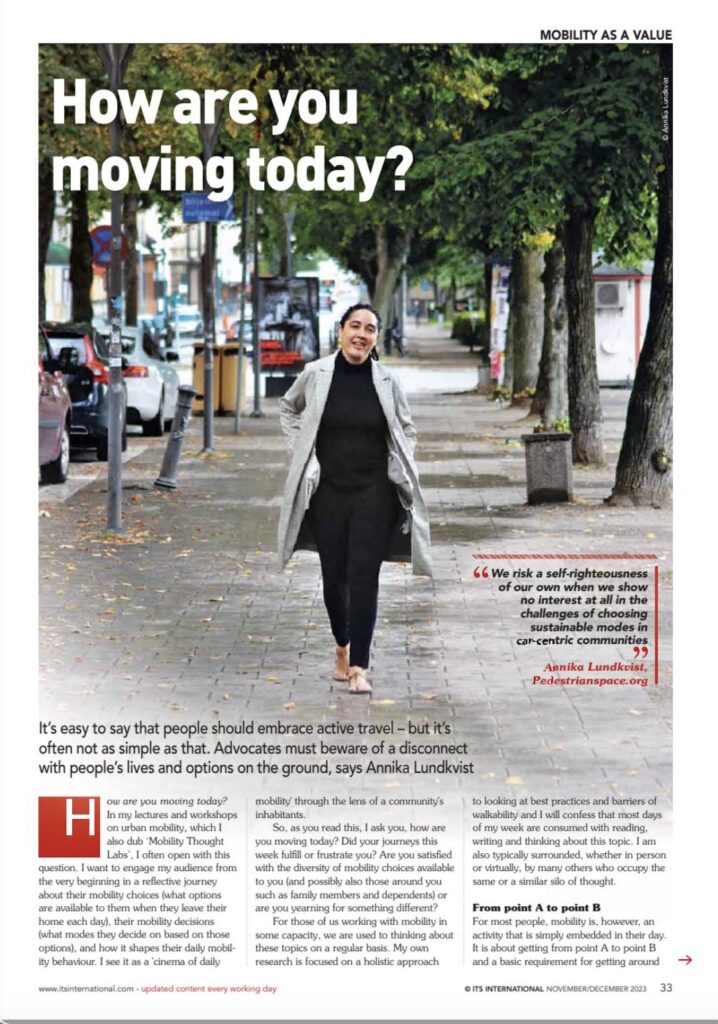
Annika Lundkvist is the founder of Pedestrian Space, an NGO and media advocacy platform that focuses on walkability and urban resilience. She is a fellow of the Schumacher Institute and is currently pursuing her PhD at the Institute of Geography and Spatial Organization at the Polish Academy of Sciences. Her research focuses on studying the 15-minute city concept in Warsaw, and how it can be used to promote issues of walkable urbanism.
Annika also founded the Global Walkability Correspondents Network, an international collective of professionals and advocates that aims to promote healthy and walkable communities. She is also a co-founder of Urban Transit Lab, a participatory media, research, and communication initiative that amplifies the voices of community inhabitants in the sustainable mobility shift.
Annika values working with diverse stakeholders across sectors to raise awareness on mobility paradigms and cultures and spatial equity as relates to urban development. Issues related to the 15-minute city concept are at the heart of her professional work as well as her lived experience in diverse communities.
